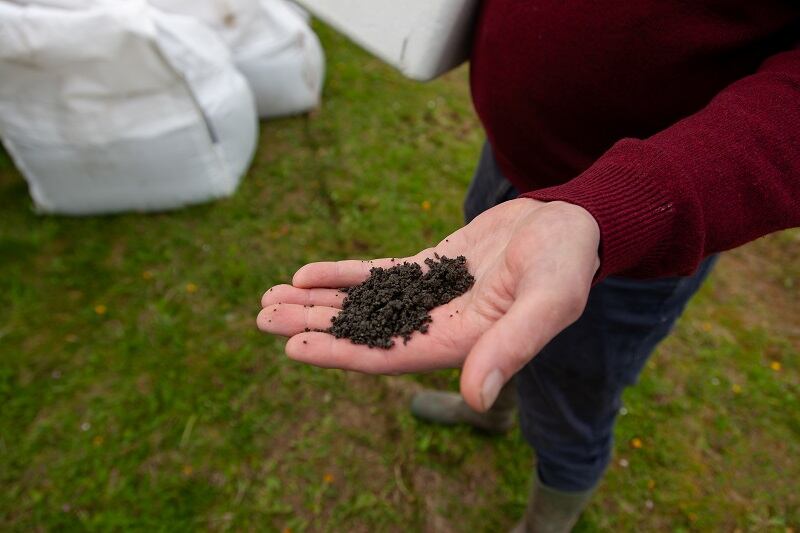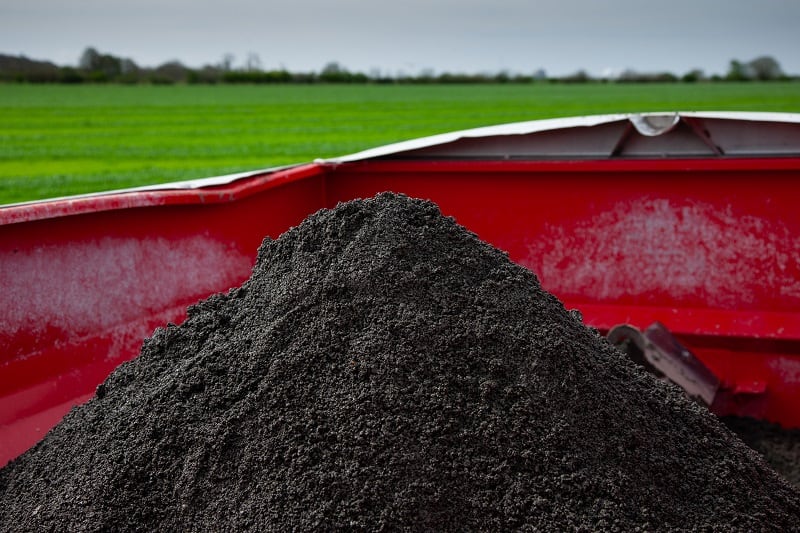Crushed basalt rock can be added to soil to capture carbon in a process called enhanced rock weathering. Enhanced rock weathering uses ultra-fine rock dust, spread on farming fields, which then chemically reacts with rainwater to convert carbon into carbonates such as baking soda and chalk. These carbonates become part of the soil and the sedimentation cycle – locking the carbon in a stable format for centuries.
The process therefore has a host of potential benefits. According to research by the University of Sheffield, it could deliver 6 to 40 million tonnes of carbon dioxide removal a year in the UK. By improving soil health by releasing nutrients like calcium, magnesium, and potassium into the soil, it could also increase crop yields by up to 20% and reduce the need for fertilisers.
Can enhanced rock weathering ever be a practical solution at scale?
But the enhanced rock weathering process relies on specialist machinery to generate this ultra-fine rock dust, which comes with its own climate cost and is expensive to scale and operate.
London-based FabricNano has now developed a protein powder made of enzymes which are already found naturally in the soil, which it hopes will speed up the enhanced rock weathering process, making it much more efficient and scalable.
The solution is a protein powder containing the Carbonic Anhydrase enzyme (a zinc-containing enzyme that catalyzes the reversible hydration of carbon dioxide) which is applied directly onto large particle basalt.
It claims that enhanced rock weathering can currently remove up to 300kg of carbon dioxide, but this process can take more than 30 years. Its process can accelerate carbon sequestration timelines from decades to just a couple of years.
What’s more, it says that adding a layer of protein powder overcomes the need for specialist equipment by making use of normal rocks - not specially pulverised ones. This would mean that rock doesn’t need to be imported and can be used from local quarries and mines. If scaled out, this form of carbon capture could potentially remove as much 40 million tonnes of carbon dioxide removal a year in the UK, the company claims.
It is now trialling the technology, in partnership with the resource management company Veolia, to further investigate the potential benefits of its solution.

Can enzymes allow for ‘instant global scalability of rock weathering for carbon sequestration’?
The trial will see protein powder, containing the Carbonic Anhydrase enzyme, combined with silicate rock spread across farmland throughout the UK – 30,000 tonnes of basalt rock will be spread in total.
The trial will use locally sourced, larger rock particles that are a plentiful resource of nearby mining operations. It will involve less than 100 miles of rock transport to the farmland and consume no energy to grind up rocks.
The aim is to prove the methodology for an efficient, scalable method to capture huge volumes of atmospheric carbon dioxide.
With net zero targets fast approaching, this innovation could make a huge difference to global decarbonisation efforts in the next decade, according to Marine Avisse, head of corporate development of Veolia UK.
“Wide scale adoption of viable, permanent and effective decarbonisation solutions is essential if we are to achieve net zero targets but we need to deploy these faster,” she explained.
“This innovation, combining world leading biotechnology and established carbon removal practices, represents a huge step forward in ecological solutions. Not only will this trial see enzymes accelerate the rate of enhanced weathering, it will also provide us with the data we need to replicate this across more applications so industries can tangibly meet their fast-approaching decarbonisation goals.”
Enzymes can naturally act to lock carbon within the ground
Grant Aarons, CEO and founder of FabricNano, claimed enhanced rock weathering with enzymes is a ‘globally viable option for reaching net zero by 2050’. “Learning from nature, we repurpose the enzyme Carbonic Anhydrase, which naturally acts to lock carbon within the ground, and which is found in plentiful supply in agricultural soils around the world. FabricNano applies an extra layer of this enzyme to the top-dressing of cropland where it helps to drive even more storage of carbon by weathering basalt rock fines.”
The ‘holy grail of rock weathering’, he said, is utilising large particle rock (>0.5mm) that’s applied to the top-dressing of cropland. “We believe that biology, namely the immobilised enzyme Carbonic Anhydrase has a role to play in enabling this breakthrough process which would allow instant global scalability of rock weathering for carbon sequestration.”


